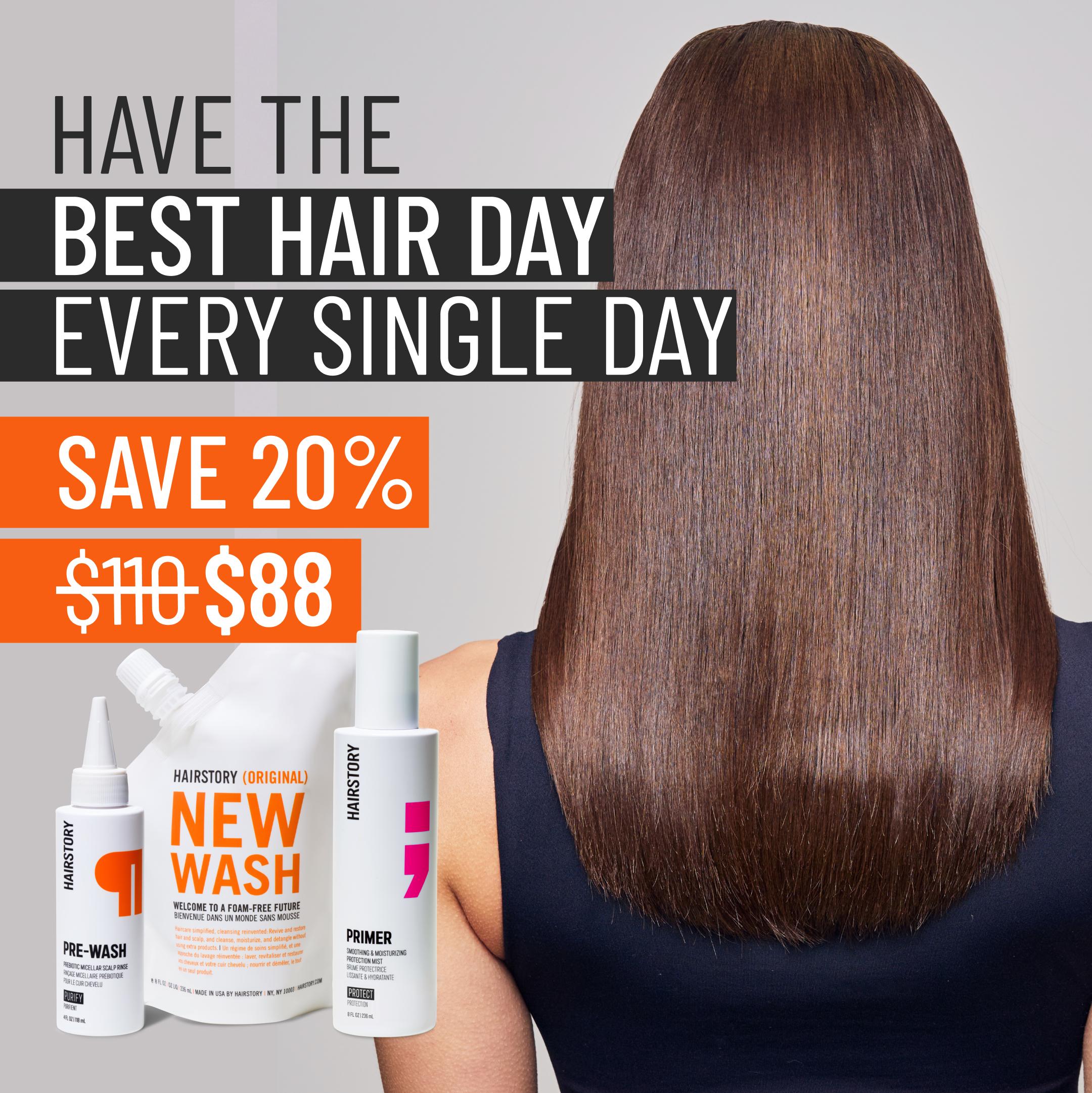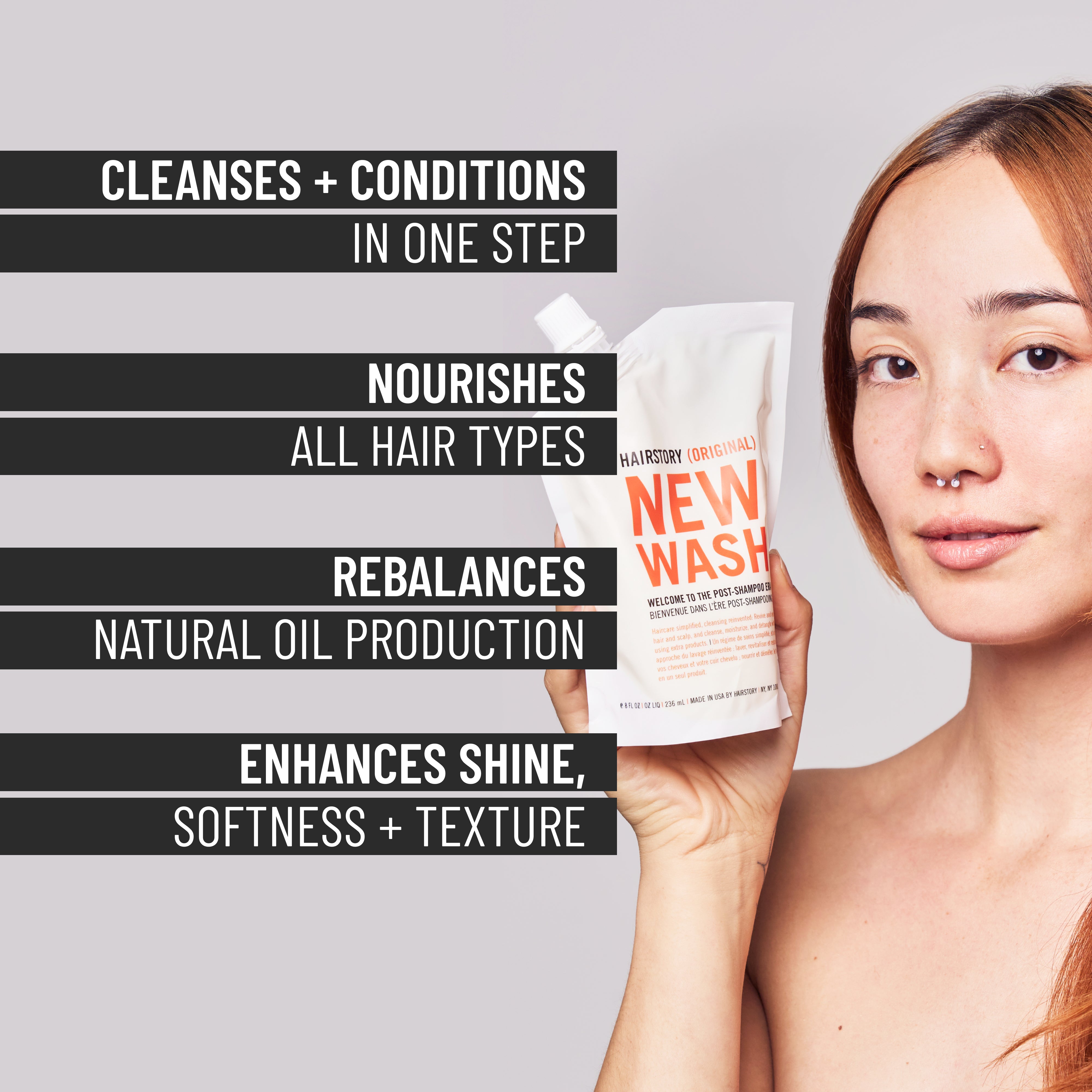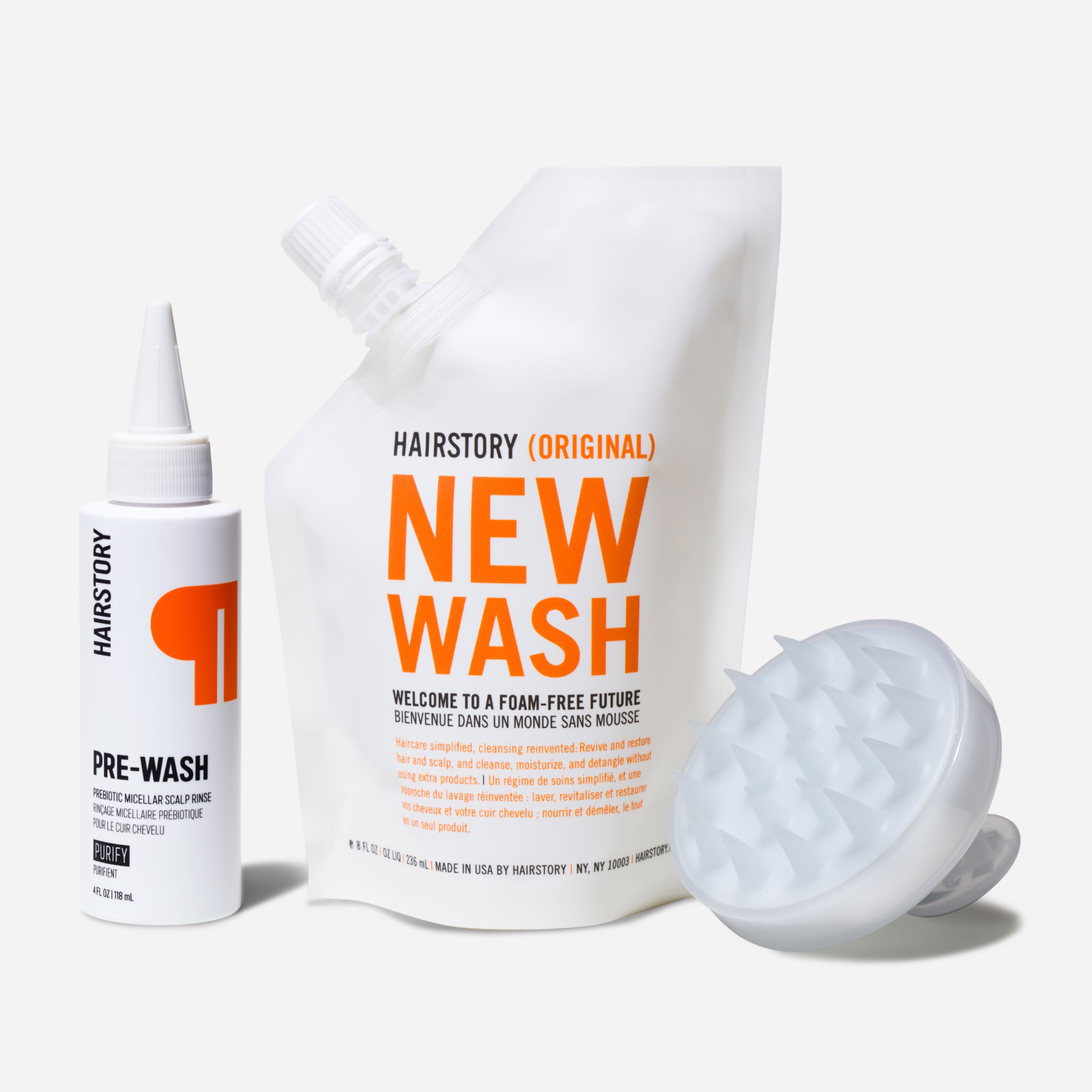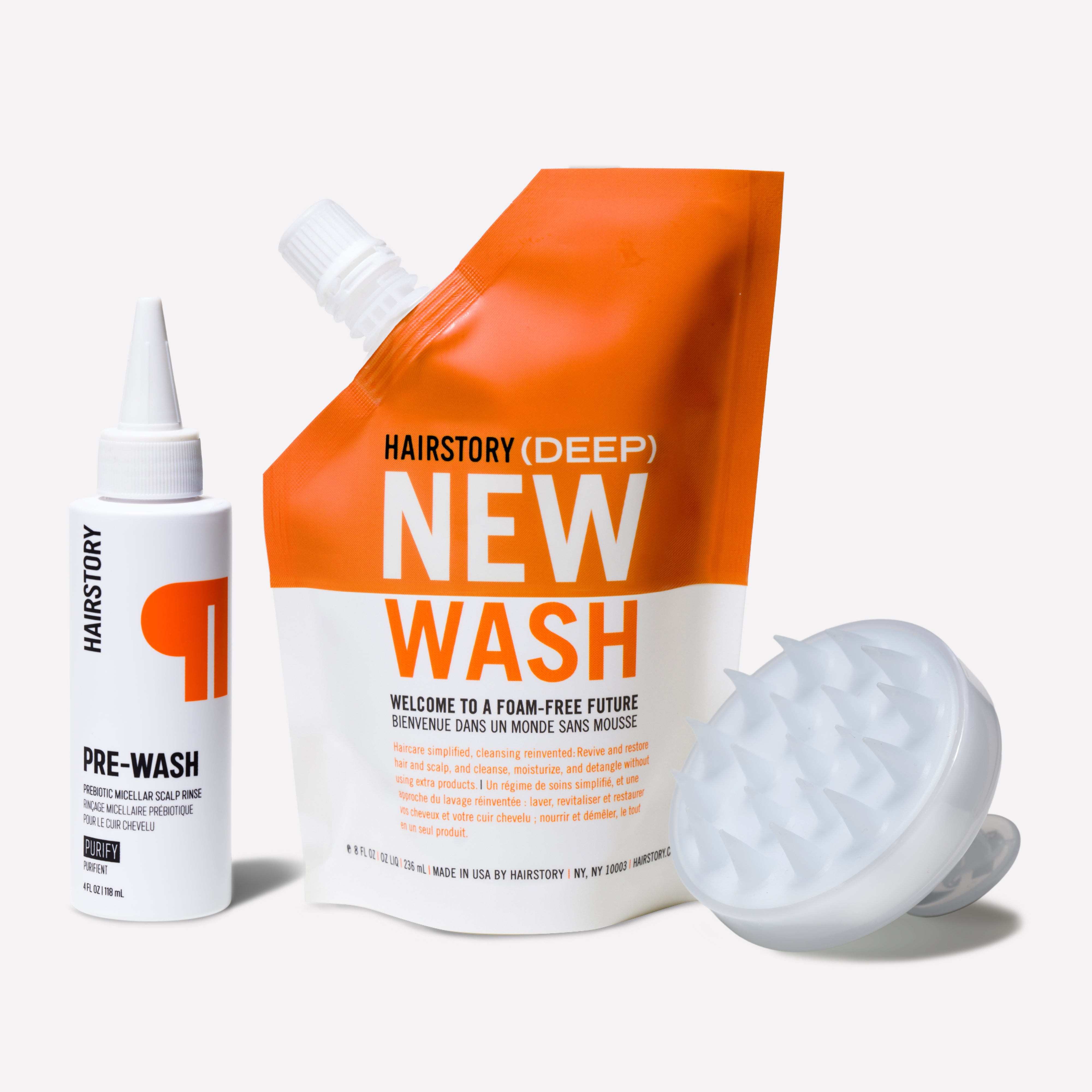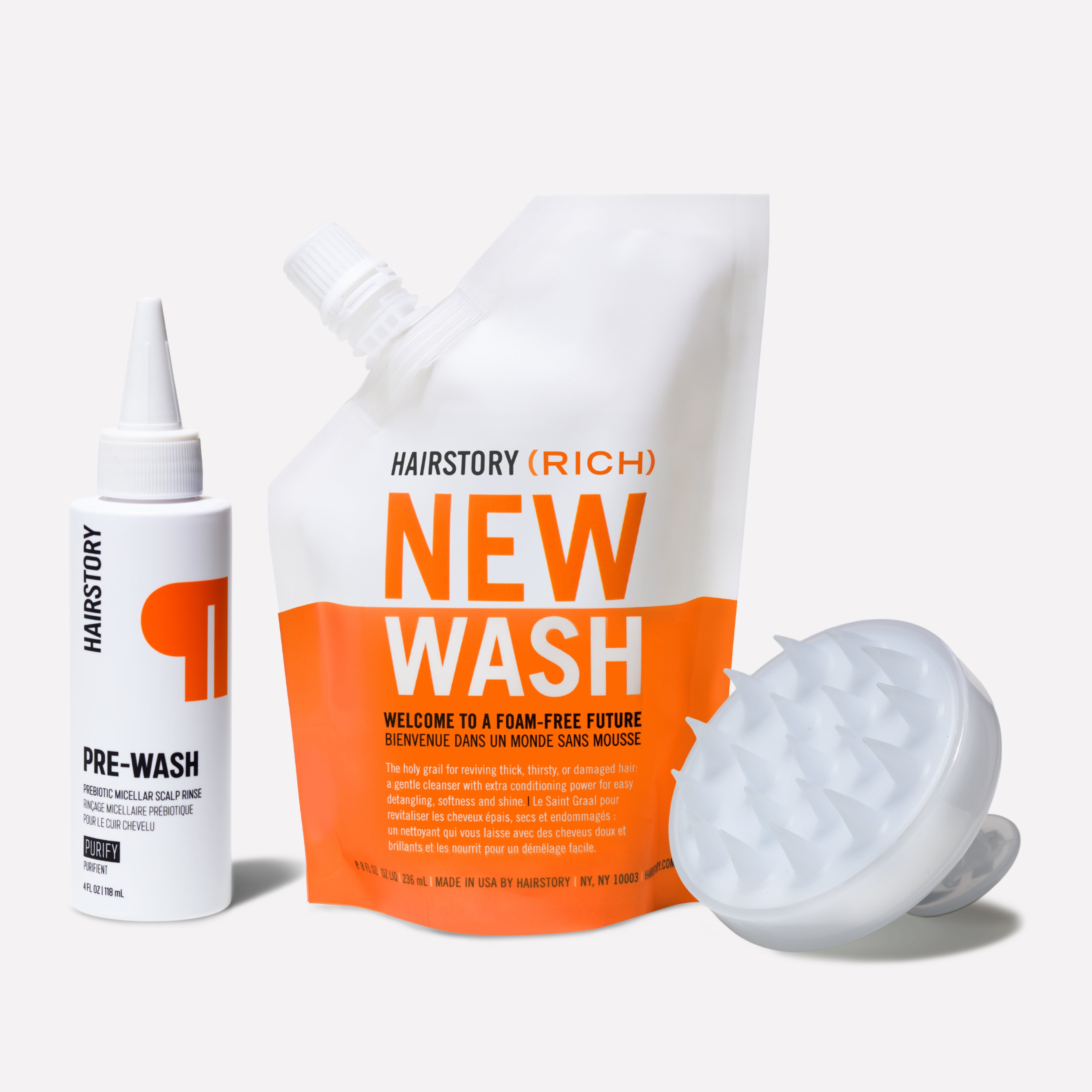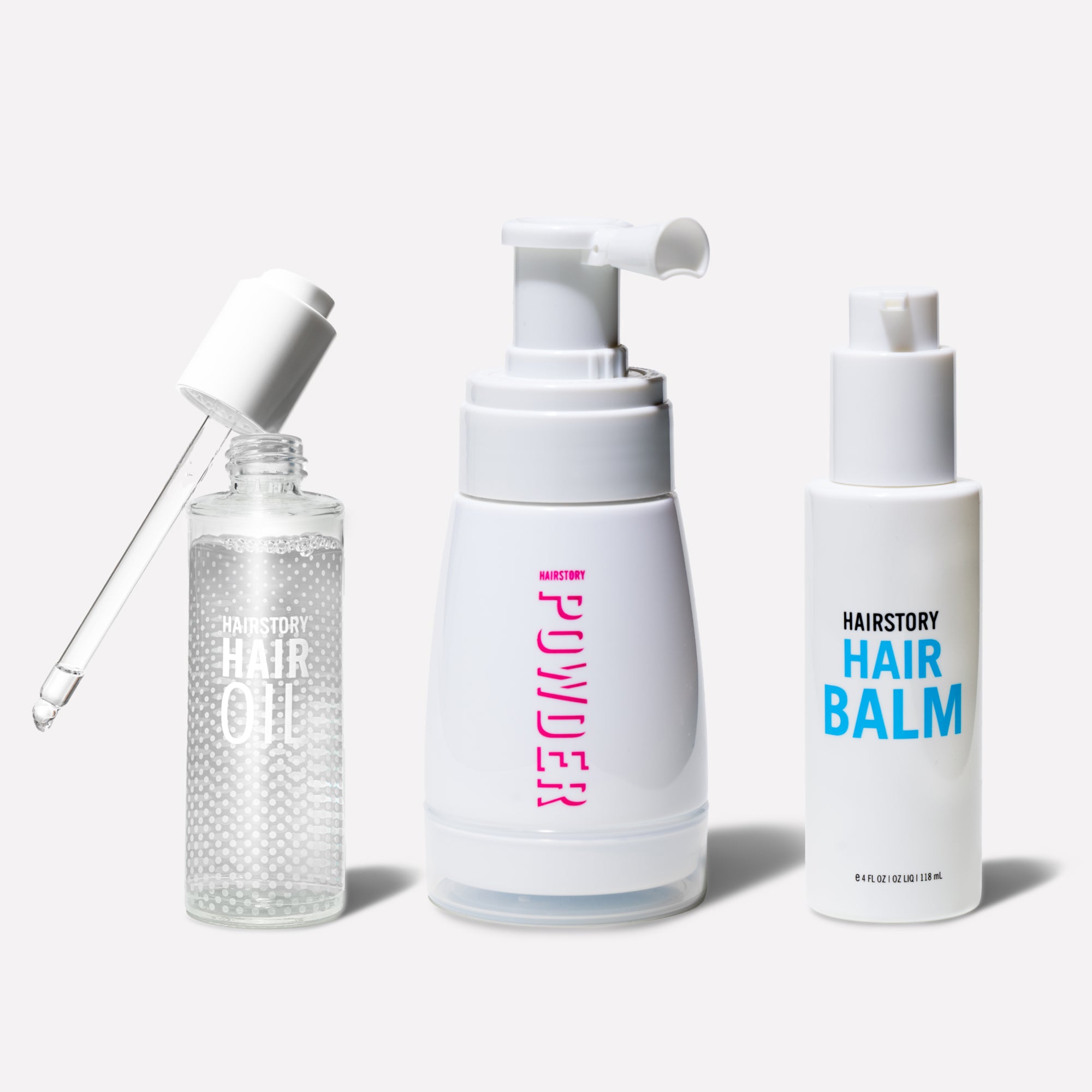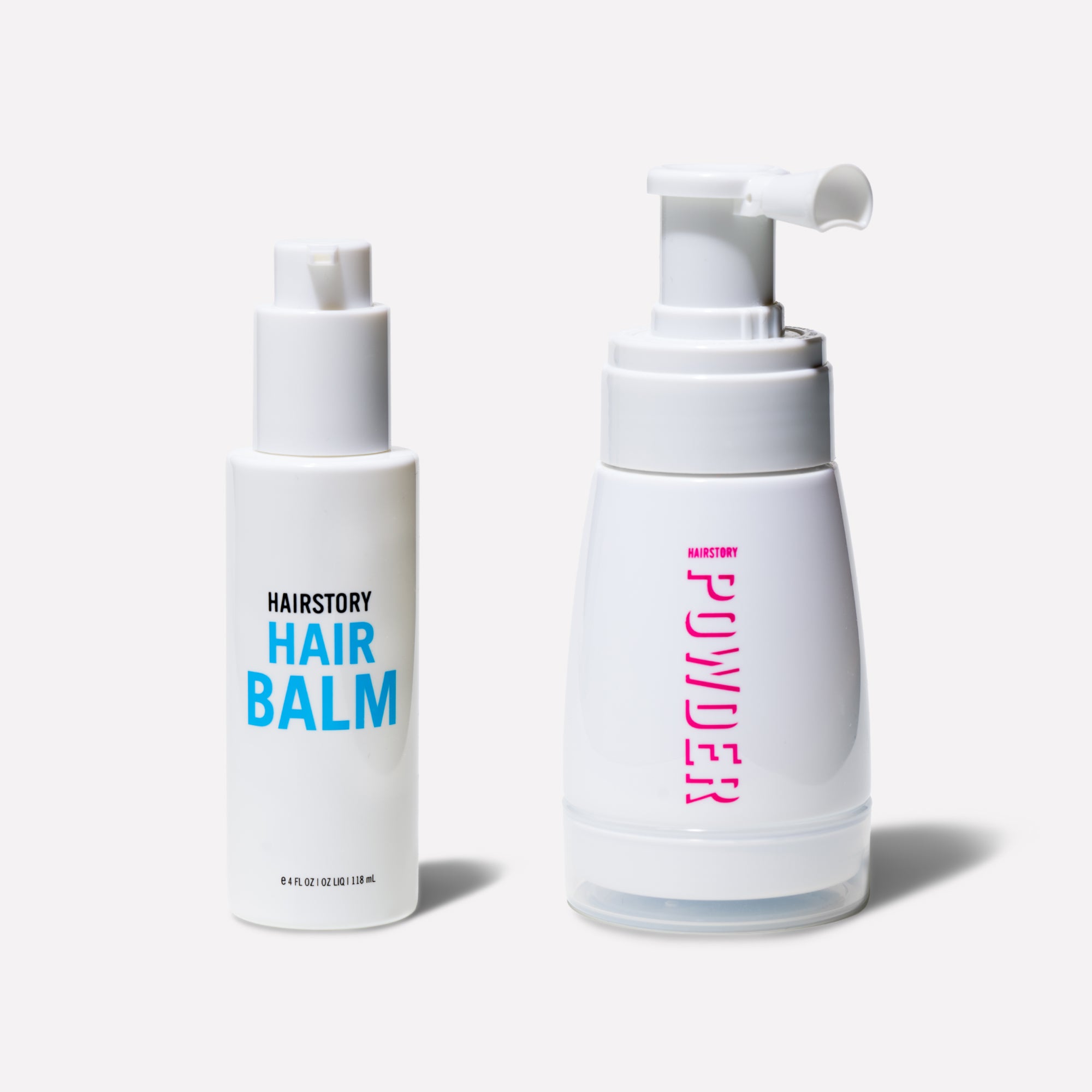What Is Silicone-free Shampoo—and Should You Make the Switch?
Silicone is a staple in cosmetics, but there’s also a growing trend to develop silicone-free products, leaving many consumers confused. Is silicone a sinister ingredient or a strand saver? Does it belong in your hair routine?
First, the good: Small amounts of certain silicones can be fantastic for smoothing and sealing hair. However, there are also some negatives. For example, too much silicone may lead to buildup, which can cause weighed-down hair and be difficult to remove.
So how do you navigate this ingredient, and what washes and styling products should you choose? We explore the ins and outs of silicones below.
What Is Silicone?
Silicone is a synthetic polymer made up of silicon (the second most abundant element in Earth's crust), oxygen, and typically carbon and hydrogen. Its unique structure allows it to be flexible, spreadable, and breathable. It is notable for its lightweight, silky feel and its ability to reflect light, making surfaces – including hair – appear glossy.
What Does Silicone Do to Hair?
As an ingredient in shampoos and styling products, silicones coat the surface of hair, leaving it smooth and glossy. Silicones were introduced to hair care as lightweight, non-greasy substitutes for oils, which create slip and moisture – but rarely offer heat protection. Although oils deliver beneficial vitamins, nutrients, and fatty acids, when they’re exposed to high heat (like that from curling irons and styling tools), they can burn and cause damage to your strands. Silicones, on the other hand, can actually protect your hair from heat damage.
Silicones can also help:
- Reduce moisture loss
- Lessen friction when combing and styling
- Detangle strands
- Minimize frizz by reducing static between strands
- Add shine
- Soften the sometimes brittle polymers used in products that hold styles
Silicones coat porous hair and make it less likely to absorb humidity (which is the reason why hair gets frizzy). So if you’re wondering how to get rid of frizzy hair, you may want to consider products that contain silicones.
Some forms of silicone have also been found to aid in color retention for color-treated hair, boost foaming of shampoos, and enhance curl retention.
Are Silicones Bad for Hair?
While silicones do offer some superficial benefits, they don’t do anything to actually make your hair healthier. Silicones simply coat your strands; they don’t add nutrients or moisture. By creating a seal around hair, they block loss of hydration – but also stop water from getting in.
That water-repelling seal can be so effective, in fact, that it becomes hard to wash out. Using multiple products that contain silicones – shampoos, conditioners, and styling products – can result in serious buildup. Used in excess, silicones may cause your hair to become heavy and greasy, rather than bouncy and smooth. Silicone buildup can also clog your follicles, which can lead to hair thinning and loss.
Is Silicone Bad for the Environment?
While silicones offer some benefits for your hair, some types of silicones are non-biodegradable or not fully biodegradable. Once you rinse them down the drain, they accumulate in the environment and may take hundreds of years to break down.
Some silicones, however, are water-soluble and generally safe for the environment.
Silicone Hair Products
The history of shampoo runs deep. In the 1960s, chemists discovered ways to suspend polymers in shampoos and conditioners, and in the 1980s, they added silicones to those formulations – creating 2-in-1 shampoo/conditioner products. Water triggers these silicones to bind to hair, so in theory, after you rinse your hair in the shower, you should be left with silky, smooth strands. However, significant amounts of silicones are required to achieve this effect, which eventually leads to silicone buildup.
How to Remove Silicone Buildup From Your Hair
Traditional advice is to use a shampoo that contains detergent to dissolve and wash away dirt, grease, and silicone products. These cleansers are designed to dissolve and wash away dirt, grease, and silicone products. However, they also clear away natural oils, which keep your hair moisturized. Then, of course, you need an additional product – conditioner – to replace that protective barrier.
Instead, a more effective way to remove silicone buildup is to use a shampoo alternative, like New Wash, which cleanses without the detergents of any kind. It doesn’t strip your natural oils, and it moisturizes while it cleanses, so there’s no need for a conditioner.
Pair that shampoo-alternative with a scalp brush to loosen silicone residue, and you’ll have clean, buildup-free hair.
Types of Silicones Found in Hair Products: Which to Watch and Avoid
There are many different types of silicones. When reviewing labels, you can generally identify silicones by looking for ingredients with names that end in -cone, such as dimethicone, amodimethicone, cyclomethicone, and methicone.
If you don’t opt for completely silicone-free cleansers and products, look for silicones that are water-soluble – like dimethicone copolyol , PEG-8 dimethicone, or isodecane – as they are better for the environment and generally easier to wash out of your hair.
What Is Silicone-free Shampoo?
As the name suggests, silicone-free shampoos contain no silicones. These cleansers are great options for people concerned about the effects of silicones on their hair and the environment. People with certain hair types – like oily or fine – may also want to avoid silicone in shampoos, as heavy silicones can weigh hair down and cause it to look greasy.
What Is the Difference Between Silicone-free and Sulfate-free Shampoo?
Silicone-free shampoos and sulfate-free shampoos serve two different purposes. Silicone-free shampoos, as described above, are less taxing on the environment and prevent silicone buildup in your hair.
Sulfate-free shampoos are, simply put, shampoos formulated without sulfates. Sulfates, such as sodium lauryl sulfate (SLS) and sodium laureth sulfate (SLES), are the cleansing agents in shampoo that create lather — but they can be harsh on your hair, stripping it of its natural oils. Sulfate-free shampoos generally contain alternative detergents that still create a lather and remove sebum, but are gentler on your hair and scalp.
Benefits of Silicone-Free Hair Products
Silicone in shampoos provides a thin, waterproof coating – that’s why your hair becomes smooth after using a silicone-based product. But when you wash your hair, your goal is to remove things that coat it, like oil, dirt, and buildup from styling products. So why would you want to wash and/or condition with a product that aims to coat what you're aiming to un-coat?
Ultimately, you don’t need silicone in your shampoo or conditioner, regardless of your hair type. You can achieve the same benefits – shine, moisture, frizz-freedom — by ditching traditional shampoo and conditioner altogether. You get healthy hair by allowing your scalp and strands to absorb, not repel, beneficial ingredients.
However, some types of silicone are fine in leave-in products, as they can help your hair stay tangle-free, lock in internal hydration, and lock out environmental moisture that creates frizz. Hairstory Dressed Up, for example, is designed to protect hair from heat styling and contains some Amodimethicone for heat protection, manageability, shine, and a smooth feel.
What to Expect When Switching to Silicone Free Shampoo or Hair Wash
When switching to a silicone-free cleanser, you might notice that your hair doesn’t seem as silky and smooth as before. However, remember that your smooth strands were made possible by silicone’s synthetic coating. Once you remove any buildup and allow your scalp’s natural moisturizer to do its job, your hair will eventually become lighter, softer, and more voluminous. Don't feel silly to suspect silicone. While it does offer some benefits, it doesn’t have to be the sole source of softness, glide, and shine. There's no shine like the natural kind that comes from smooth cuticles and well-cared-for hair.

